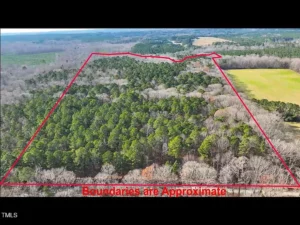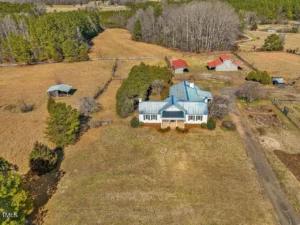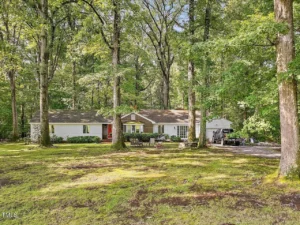These days, there is very little information that can’t be found online. All the world is available at your fingertips. Does that mean obsolescence looms for brokers and agents? Listen in as Eric discusses why they’re still relevant.
Interviewer: What is the race of revelation?
Eric: Okay. So again, I was at this National Land Conference in San Antonio, Texas. We had a technology talk, and one of the speakers was the CEO and founder of a company called AcrePro. He had a lot of interesting things to say. I mean, it was really surprising to see how young he was. I mean, he might have been 30, which was really, really weird to me. He said, “I mean, they just hired 60 employees. They’re going to be hiring another 120 in the next few months.” But the most important thing is no longer is there a lack of information regarding land. Like, we all have access to the information right now. You can find an aerial, you can find a survey, you can find the soils maps, you can find the watershed, flood plane, everything.
So, why are the brokers still relevant? Well, he showed us a scale of what kind of investments are good. We look at their appreciation and then we also look at the volatility. Everybody talks about gold and how great gold is, but gold is very volatile. And gold doesn’t always appreciate with inflation, so it’s not as dependable. Land is a really, really solid, strong investment. Especially ag land. So if you have farmable acreage, that is a commodity that is done very, very well. It outperforms most things that you could invest in, however, land lacks liquidity. We think about residential real estate right now. Everybody’s got a neighbor that sold a house in 24 or 48 hours. And still, today, in this market, average days in the market is 12 months. It used to be 24 months.
There’s a lot of reasons for that. First of all, it usually takes a long time to close on land. A house is in a 30 to 60 day range. Commercial properties are in a 60 to 90 day range. And land can be between 90 and 720 days. I have a lot of properties right now that are under contract with 15, 18, and 24 month contracts. The other thing that people need to know about land, of course, is there’s a lack of comparables. Land is so unique. You can have two houses in a subdivision. It’s the same floor plan, the same neighborhood. It might even be the same color. Those are going to be really, really close in value. But 10 acres over here, and 10 acres over here, they can be a mile apart. They can be vastly different. There can be huge, tremendous difference in the values.
There’s really poor MLS data regarding land. We don’t have the same fields. When you do a comparative market analysis on MLS for land, it really is apples and oranges. It’s just, land isn’t sexy like houses are. Houses have an appeal. They have curb appeal. You can see the kitchen. You can see this and everything. But how many pictures of trees can you take? It’s not really that good. It’s just too small of a market share for MLS to care about. But, one of the things I thought was really interesting, even in this age of technology and all the information being out there, 90% of residential real estate transactions had an agent involved. 90%. That’s huge. With land, it’s very close to 100%.
So, real estate agents are still relevant as far as residential real estate is concerned, but they’re very relevant as far as land real estate transactions are concerned. We know this. This is why this is so important. 90% of land buyers start their search online. Before they even talk to an agent, they’re on the computer looking. So digital first interactions are very important. What sites? You want them on land sites. And what information do they have? So it’s real important that when we put something on our websites that it has all the information that’s relevant to our sellers. So it is an information age, but there’s still vast differences. You have to be able to interpret that information. And then you need someone who’s able to negotiate that information on your behalf.





